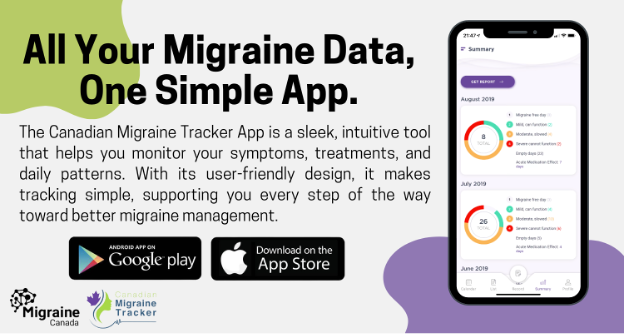Migraine is a misunderstood disease, and Migraine Canada™ is working to improve care and awareness.
Migraine has long been misunderstood, often dismissed as nothing more than a headache. Migraine’s complexity as a neurological disease is often overlooked, while the effects of stigma, misdiagnosis, and medical neglect are still felt today. There’s still a long way to go in reducing stigma and improving education and awareness among the general public and the medical community.
Migraine may involve a range of symptoms, including intense head pain, nausea, sensitivity to light and sound, and visual disturbances known as aura. Attacks can last for hours or even days and may occur occasionally or become chronic, happening 15 or more days each month. This can be debilitating, affecting mental health, work, family, and relationships.
Migraine is one of the most common and disabling neurological conditions in the world. In Canada alone, more than 5 million people live with migraine. It affects 1 in 4 women, 1 in 10 men, and 1 in 10 children.
The World Health Organization ranks migraine among the top causes of disability. Chronic migraine is considered more disabling than blindness, paraplegia, or rheumatoid arthritis. Despite this, migraine remains widely misunderstood, underdiagnosed, and undertreated, leaving many people without the help they need.
Navigating Life with Migraine

In response to the growing need for education, support, and advocacy, Migraine Canada™ was created. As a national, federally registered charity, Migraine Canada™ works to raise awareness, provide education, and advocate for better care across the country. The organization offers free, evidence-based, and resources for people living with migraine.[KH1]
Managing migraine can feel overwhelming, but the right tools make a difference. Understanding treatment options, tracking symptoms, having a toolkit and building a supportive healthcare team are essential components in developing an effective migraine management plan. Migraine Canada’s practical tools include acute, preventive, and pediatric dosing guides; education kits; monthly support groups and webinars; a headache clinic locator; and the free Canadian Migraine Tracker app, a tool designed to help patients record important elements of their migraine journey and make medical visits more efficient.
Migraine can feel isolating, but there is a growing community that understands what those living with it are going through. By subscribing to Migraine Canada’s newsletter, you’ll receive updates on new resources, events, treatment options, and ways to connect with others. Visit www.migrainecanada.org to explore the many free tools available and register for upcoming programs.
Together, we can reduce stigma, improve care, and support one another.
To learn more, visit www.migrainecanada.org.


